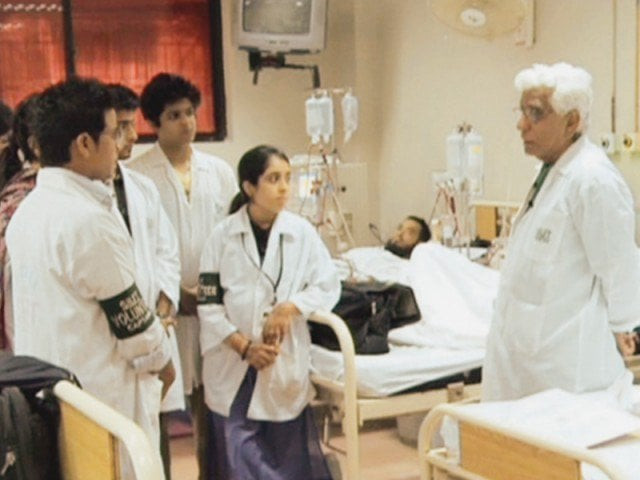Bioethics centre at SIUT designated as WHO's collaborator
Official ceremony to mark collaboration takes place at the institute

Dr Ardakani claimed that SIUT was one of the most exemplary organisation in the entire region. PHOTO: EXPRESS/FILE
This is the first such centre in the WHO's entire Eastern Mediterranean Region, which comprises of 21 countries including Pakistan.
To mark the start of formal collaboration between the CBEC and health body, WHO Pakistan Mission Head Mohammad Assai Ardakani and WHO Geneva representative Dr Andreas Reis handed the organisation's flag over to CBEC Chairperson Prof Farhat Moazam. SIUT Director Prof Dr Adibul Hasan Rizvi was also present on the occasion.
CJP pledges to donate organs to SIUT after death
In his welcome address, Dr Rizvi mentioned that the bioethics centre at SIUT, which was established in 2004, was the only one of its kind in the country. He added that since its establishment, over 100 professionals from across the country and abroad had graduated from its academic programmes. In the current batch, students from Kenya, Uganda and Qatar were enrolled in addition to Pakistani students, he said.
Transplant immunology laboratory inaugurated at SIUT
"We are pleased that the Centre of Biomedical Ethics and Culture at SIUT has been recognised as a collaborating centre for bioethics, and has thus joined the WHO family," Dr Reis said, adding that the centre was one of the oldest and most prestigious institutions working on bioethics in the region and was internationally recognised. The WHO representative also shed light on the prospects of future collaboration between the health organisation and CBEC.
According to Dr Reis, the WHO had greatly benefited from the centre's expertise and contributions in different areas - such as ethics in organ transplantation, research ethics, and epidemics - all of which were key priorities in the WHO's work plan.
Dr Ardakani informed the gathering that he studied at Dow Medical College in the early 1980s. The WHO country head recalled a time when he was a student of Dr Rizvi. He claimed that SIUT was one of the most exemplary organisation in the entire region. In addition to being a leader in organ transplantation, SIUT is leading in bioethics as well, he said.
Prof Moazam remarked that over a period of 13 years since its inception, the centre had gained reputation as a credible national and regional resource for bioethics. The centre's alumni are heading their own bioethics initiatives in various institutions, the CBEC chairperson added.



















COMMENTS
Comments are moderated and generally will be posted if they are on-topic and not abusive.
For more information, please see our Comments FAQ